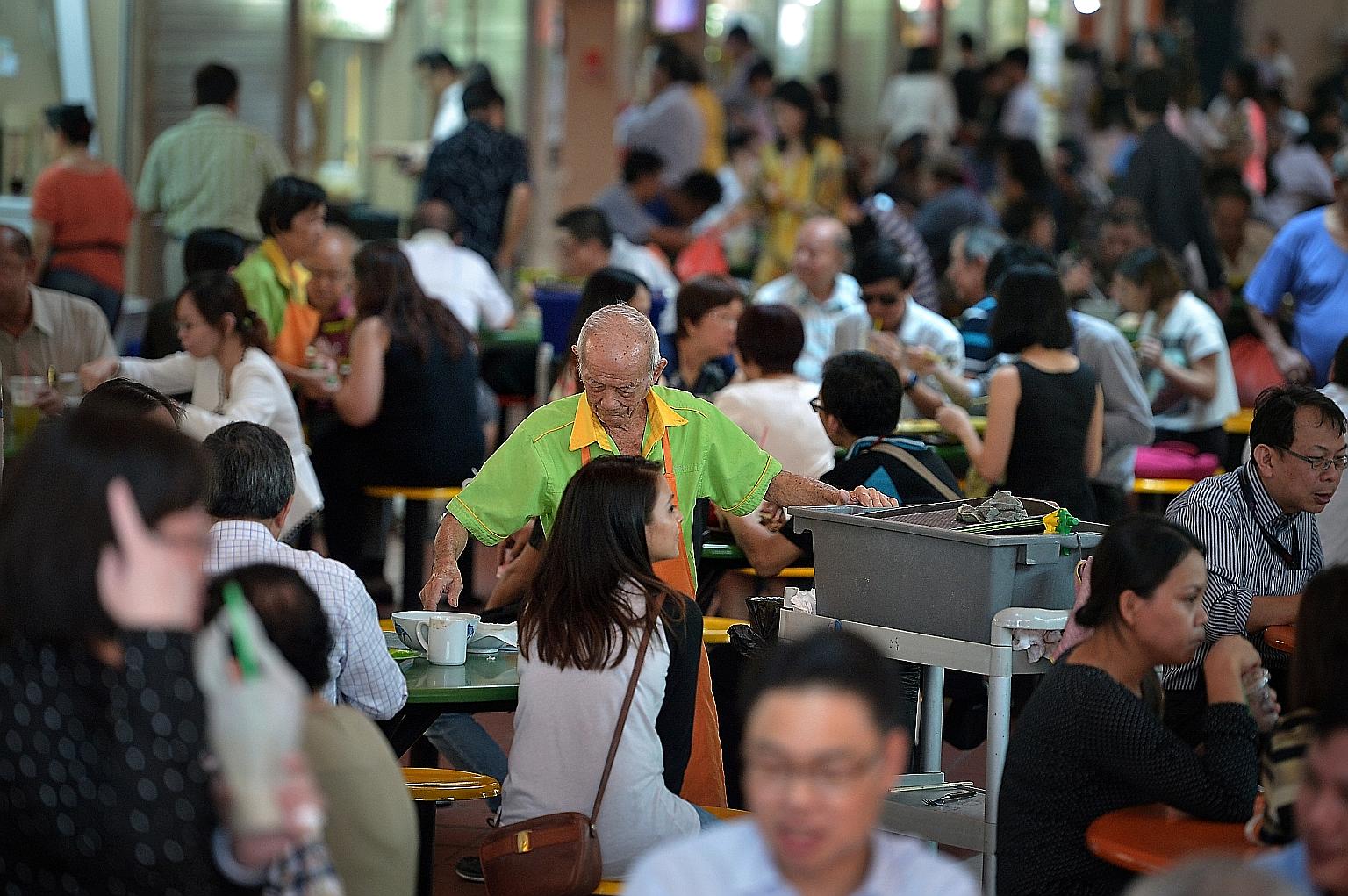Cleaning firms must pay cleaners annual bonus from 2020
More than 40,000 S'porean and PR cleaners to get income boost
Sign up now: Get ST's newsletters delivered to your inbox

Cleaners at the Maxwell Food Centre. Under the new law, over 40,000 Singaporean and permanent resident cleaners may receive up to 4 per cent more in wages each year.
ST PHOTO: KUA CHEE SIONG
Cleaners will receive an income boost from January 2020, when it becomes mandatory for cleaning firms to pay them an annual bonus.
The move will benefit more than 40,000 Singaporeans and permanent residents who work as cleaners, and they may receive up to 4 per cent more in wages each year.
Under the Environmental Public Health (Amendment) Bill passed in Parliament yesterday, cleaning businesses which do not comply with this new requirement can be fined or risk losing their licences.
An annual bonus for cleaners was one of several recommendations put forth by the Tripartite Cluster for Cleaners (TCC) two years ago. It also recommended yearly wage adjustments between 2017 and 2022.
In its proposal, the TCC had recommended a minimum annual bonus amount of two weeks of a cleaner's basic monthly wage.
But the annual bonus requirement - to become part of the progressive wage model for cleaners - does not apply to the 17,000 foreigners working as cleaners here. This point was raised by Mr Louis Ng (Nee Soon GRC) during the debate on the Bill.
Senior Minister of State for the Environment and Water Resources, Dr Amy Khor, explained that foreign workers are hired on different terms, and employers bear expenses such as additional levies and accommodation arrangements.
But Dr Khor said the Government encourages employers to adopt the same principles of progressive wages for this group of cleaners.
Twelve members of the House spoke on the Bill, which will also expand the use of the Pneumatic Waste Conveyance System (PWCS) in Singapore.
The PWCS uses air pressure to convey waste through sealed pipes, from throw-points to a bin centre. It replaces the need for cleaners to collect waste from individual housing blocks and take it to a bin centre. As the entire system is enclosed, odour and pests are reduced.
The new legislation will allow the Government to implement the PWCS in entire designated districts, and all private developments within that area will be required to connect to a refuse pipeline network.
Dr Khor said this can reap more economies of scale. "For example, instead of having bin centres in each development, the district can share a central bin centre," she said.
MPs like Workers' Party chairman Sylvia Lim (Aljunied GRC) raised concerns about the costs to homeowners in a PWCS district.
Dr Khor explained that waste generation in Singapore is on the rise, and if new technologies are not adopted, an increase in manpower will be needed which, in turn, requires more foreign labour.
Systems such as the PWCS help to automate waste collection, allowing workers in the industry to take on higher value-added jobs, she added.
The PWCS will account for a small proportion of a condominium's maintenance expenses. "Hence, the PWCS will not significantly affect residents' maintenance fees," she said.
The district-level PWCS will be first implemented at Kampong Bugis. The PWCS is already used in Yuhua estate, where 38 Housing Board blocks were retrofitted with the system in 2015.
More than 140 private residential and commercial developments have also implemented the PWCS.
Wrapping up the debate, Dr Khor said the Bill is "a milestone in our journey to transform our environmental services industry through innovation and technology".
"At the same time, we will upskill our environmental services workers, and improve their livelihood and working conditions," she said.


